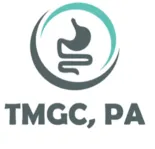Beginning at age 50, both men and women at average risk for developing colorectal cancer should undergo screening. There are a variety of tests that are designed to find both early cancer and polyps but colonoscopy remains the gold standard. This is due to its ability to view the entire colon and both detect, as well as remove polyps during the same procedure. If you have questions about the colonoscopy procedure or other screening tests, we encourage you to talk to your doctor about which method is best for you.
You should talk to your doctor about starting colorectal cancer screening earlier and/or being screened more often if you have any of the following colorectal cancer risk factors:
- A personal history of colorectal cancer or adenomatous polyps
- A personal history of chronic inflammatory bowel disease (Crohn’s disease or ulcerative colitis)
- A strong family history of colorectal cancer or polyps (cancer or polyps in a first-degree relative [parent, sibling, or child] younger than 60 or in 2 or more first-degree relatives of any age)
- A known family history of hereditary colorectal cancer syndromes such as familial adenomatous polyposis (FAP) or hereditary non-polyposis colon cancer (HNPCC)
National Cancer Institute http://www.cancer.gov/
IMPORTANT REMINDER:
The preceding information is intended only to provide general information and not as a definitive basis for diagnosis or treatment in any particular case. It is very important that you consult your doctor about your specific condition.

